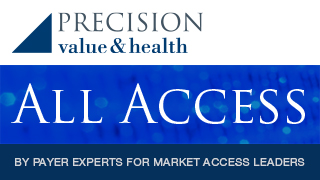One year after the end of the Center for Medicare and Medicaid Innovation’s multiyear Oncology Care Model (OCM), its successor program, the Enhancing Oncology Model (EOM), began on July 1, 2023. EOM is a voluntary 5-year model in which oncology practices assume risk and accountability for their Medicare patients’ health quality and total spend during 6-month episodes of care. Episodes begin with initiation of systemic chemotherapy[1] for the 7 cancer types in which the Centers for Medicare and Medicaid Services (CMS) saw the greatest reductions in total episode payments under OCM: high-risk breast cancer; lung, prostate, and small intestine/colorectal cancer; lymphoma; chronic leukemia; and multiple myeloma.[2]
CMS surprised some by pushing forward with the start date as planned, and CMS has noted lower-than-expected participation rates. Initially they announced that 67 oncology group practices would participate, but only 44 practices are participating, which remains true as of January 29, 2024.1 This number of EOM participating practices represents a 64% reduction from the final number of participating practices in the OCM (122). CMS has stated that sufficient practice participation is necessary for EOM to be viable and to enable ongoing evaluation of the model. Three commercial payers are engaged in EOM, fewer than the 17 payers that began in OCM, or the 5 that remained at the end. Aetna is the only commercial payer to engage with CMS in both models.1
Recently, Community Oncology Alliance (COA) Executive Director Ted Okon and Managing Director Nick Ferreyros joined COA’s Patient Advocacy Network for a virtual Advocacy Chat, in which they discussed several anticipated key policy and advocacy topics for 2024.3 The discussants noted there have been limited EOM updates as practices report that they only recently obtained some of their data from CMS for the first 6-month episode of care initiation period. Of importance, the first performance period encompassed episode initiation dates between July 1, 2023, and December 31, 2023. The episode end dates are still ongoing (ie, from December 31, 2023, to June 29, 2024) to accommodate each 6-month episode that began during the initiation period. Since the model includes upside and downside risk from day 1, participating practices will be very interested in working through the data and collaborating with CMS.
Additionally, COA noted that CMS is talking about opening up another enrollment period to see if they can encourage more practices to join the model. Experts at COA suspect that, unless the model payments increase—Monthly Enhanced Oncology Services (MEOS) payments are lower than OCM MEOS payments—participation will remain low. So, for now, stay tuned for any news of potential sign-up periods or results from the first performance period that may be released as the model progresses.
Potential impact for payers: CMS encouraged payers to participate in EOM to drive consistent metrics. It allowed them flexibility to adapt the model to suit their needs, as well as requiring they partner with at least 1 EOM participant practice throughout the entirety of the model. While only 3 commercial payers signed on to EOM, they each may ultimately play a role as a paragon of value-based oncology care and encourage additional payer participants if CMS reopens participation.
Potential impact for pharmaceutical manufacturers: With EOM practices assuming 2-sided risk from day 1, practices will closely scrutinize their data and look for cost-saving opportunities. However, the impact on manufacturers will vary, depending on whether their drug lands as an evidence-based treatment option within one of the targeted cancers in the model. EOM incorporates adjustments for novel therapies; however, practices may be looking beyond biosimilars and generics for cost savings and therefore may more closely scrutinize branded drug utilization as a means to achieve total cost-of-care savings. While cost pressures may threaten to impact branded drug utilization for Medicare beneficiaries in EOM practices, there may be potential spillover into other commercial patients within these practices, so it’s increasingly imperative to focus on their product’s therapeutic outcomes and consistent communication of the overall brand value to EOM participants.
- Enhancing Oncology Model. Centers for Medicare & Medicaid Services. 2024. https://innovation.cms.gov/innovation-models/enhancing-oncology-model
- Enhancing Oncology Model (EOM) Model Overview and Benefits for Physician Group Practices. Center for Medicare & Medicaid Innovation, Centers for Medicare & Medicaid Services; 2022.
- COA’s crystal ball: what to expect from cancer policy in the year ahead 2024. Community Oncology Alliance Patient Advocacy Network. https://coaadvocacy.org/events/cpan-chats/coas-crystal-ball-what-to-expect-from-cancer-policy-in-the-year-ahead-2024/


